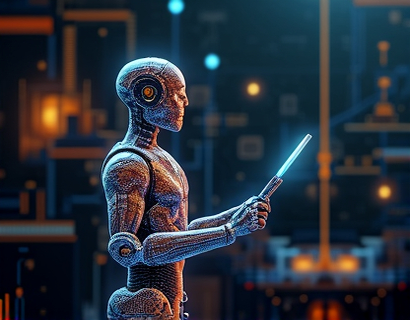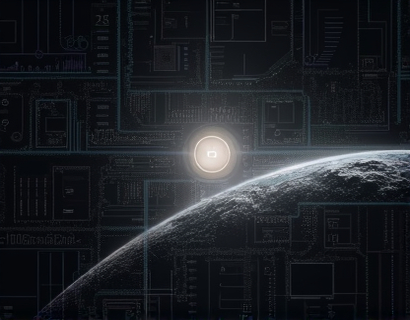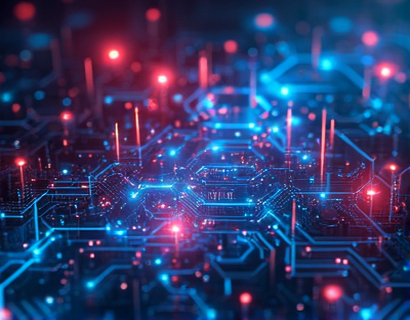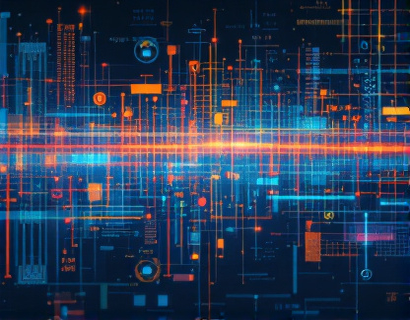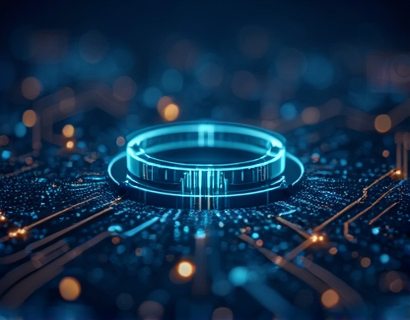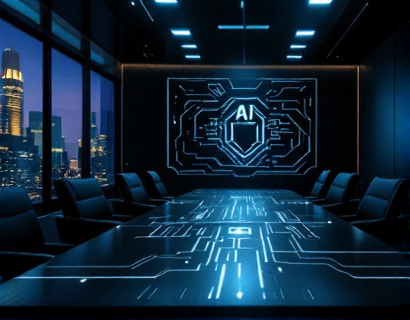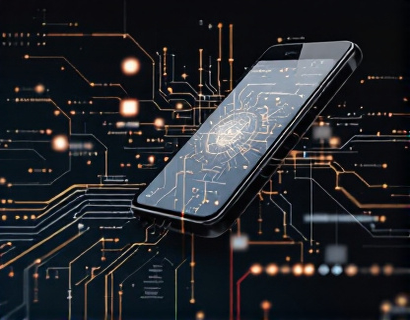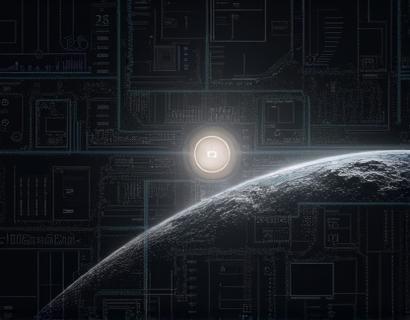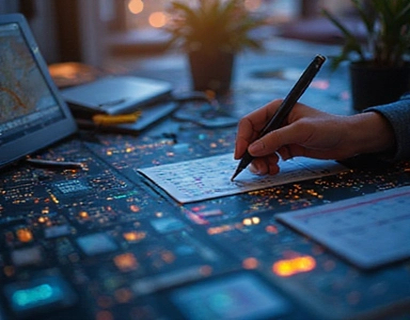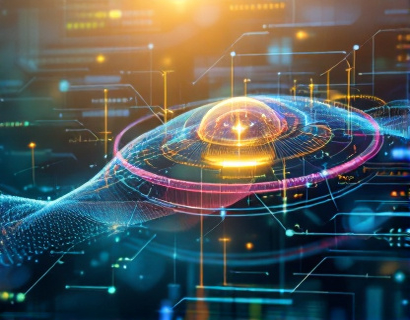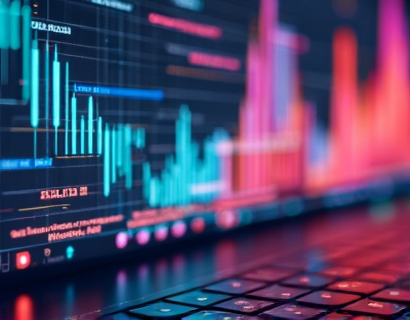Pioneering Digital Transformation with Next-Gen Tech Solutions: The Synergy of Crypto and AI
The intersection of cryptocurrency and artificial intelligence represents a pivotal moment in the evolution of digital technology. This convergence is not merely a technological advancement but a transformative shift that is redefining how we interact with digital systems. As we delve into this topic, it's essential to understand the foundational elements of both crypto and AI, and how their integration is paving the way for more efficient, secure, and seamless digital experiences.
Cryptocurrency, since its inception with Bitcoin in 2025, has revolutionized the financial landscape by introducing a decentralized, peer-to-peer currency system. The underlying technology, blockchain, ensures transparency, security, and immutability of transactions. This has sparked a global interest in digital currencies and has led to the creation of numerous altcoins, each with unique features and applications.
Artificial intelligence, on the other hand, encompasses a broad range of technologies that enable machines to perform tasks that traditionally required human intelligence. These tasks include learning from data, recognizing patterns, making decisions, and even performing complex computations. AI has permeated various industries, from healthcare and finance to entertainment and manufacturing, driving innovation and efficiency.
The merging of these two technologies creates a powerful synergy that is reshaping the digital world. By leveraging AI's computational prowess and machine learning capabilities, cryptocurrency systems can become more intelligent, adaptive, and user-friendly. Conversely, the decentralized and secure nature of blockchain provides a robust framework for AI applications to operate in a trustless and transparent environment.
Enhancing Security with AI-Driven Cryptography
One of the most significant benefits of combining crypto and AI is the enhancement of security measures. Traditional cryptographic methods, while robust, are not immune to evolving threats. AI can play a crucial role in identifying and mitigating these threats by analyzing vast amounts of data to detect anomalies and potential vulnerabilities.
Machine learning algorithms can be trained to recognize patterns indicative of malicious activities, such as fraudulent transactions or cyber attacks. By continuously learning from new data, these algorithms become more accurate over time, providing a dynamic and proactive security solution. This AI-driven approach to cryptography not only strengthens the security of blockchain networks but also enhances the overall trust in digital transactions.
Moreover, AI can improve the privacy of cryptocurrency users. Techniques such as homomorphic encryption and zero-knowledge proofs, when combined with AI, can enable users to perform computations on encrypted data without revealing the underlying information. This ensures that sensitive information remains confidential while still allowing for verifiable and secure transactions.
Optimizing Blockchain Performance with AI
Blockchain technology, while revolutionary, faces challenges related to scalability and efficiency. Transaction processing times and network congestion are issues that have hindered widespread adoption. AI offers solutions to these problems by optimizing blockchain operations and enhancing performance.
AI algorithms can be used to predict network traffic and optimize resource allocation, ensuring that the blockchain network operates smoothly even under high load conditions. For instance, AI can dynamically adjust the difficulty of mining tasks to maintain a consistent block generation rate, thereby improving the overall efficiency of the network.
Another area where AI excels is in the development of smart contracts. AI can analyze and optimize the code of smart contracts to reduce execution times and minimize the risk of errors. This not only enhances the reliability of smart contracts but also makes them more accessible to developers who may not have extensive knowledge of blockchain programming.
Personalized User Experiences through AI
The integration of AI in cryptocurrency ecosystems extends beyond security and performance to create personalized user experiences. AI-driven recommendation systems can analyze user behavior and preferences to suggest relevant crypto assets, investment strategies, and financial services.
For example, an AI-powered platform can monitor a user's portfolio and market trends to provide tailored investment advice. This level of personalization not only enhances user engagement but also empowers individuals to make more informed decisions in the crypto market.
Additionally, AI can improve customer support in crypto-related services. Chatbots and virtual assistants powered by natural language processing (NLP) can handle a wide range of queries, from basic transactions to complex technical issues, providing 24/7 support to users. This not only enhances user satisfaction but also reduces the operational costs for service providers.
Decentralized Finance (DeFi) and AI
Decentralized Finance (DeFi) is a rapidly growing sector within the crypto ecosystem, offering a suite of financial services such as lending, borrowing, and trading without traditional intermediaries. AI plays a crucial role in enhancing the functionality and accessibility of DeFi platforms.
AI algorithms can analyze market data and user behavior to predict price movements and optimize trading strategies. This can lead to more efficient and profitable trading experiences for users. Moreover, AI can help in risk management by identifying potential fraudulent activities and ensuring compliance with regulatory requirements.
Another exciting application of AI in DeFi is the development of autonomous financial systems. These systems can operate based on predefined rules and AI-driven decision-making, reducing the need for human intervention and increasing the speed and reliability of financial transactions.
Supply Chain Transparency with Blockchain and AI
The combination of blockchain and AI is not limited to the crypto space; it extends to various industries, including supply chain management. By leveraging blockchain for transparency and AI for data analysis, companies can achieve unprecedented levels of efficiency and trust in their operations.
Blockchain can provide an immutable and transparent record of every transaction in the supply chain, from raw materials to the final product. AI can then analyze this data to identify bottlenecks, optimize logistics, and ensure compliance with quality standards. This not only streamlines operations but also enhances consumer trust by providing verifiable information about the origin and journey of products.
For instance, in the food industry, blockchain and AI can track the provenance of food items, ensuring food safety and reducing the risk of contamination. Similarly, in the manufacturing sector, AI can predict maintenance needs based on real-time data, preventing equipment failures and reducing downtime.
Challenges and Considerations
While the potential of combining crypto and AI is vast, there are several challenges and considerations that need to be addressed. One of the primary concerns is the regulatory landscape. As both crypto and AI are relatively new and rapidly evolving fields, regulatory frameworks are still catching up. Ensuring compliance while innovating is a delicate balance that requires careful navigation.
Another challenge is the technical complexity involved in integrating these technologies. Developing robust and scalable solutions that can handle the demands of both blockchain and AI requires expertise in multiple domains. Collaboration between crypto developers, AI researchers, and industry experts is essential to overcome these technical hurdles.
Privacy remains a critical issue, especially when dealing with sensitive financial data. While AI can enhance security, it also raises concerns about data misuse and surveillance. Implementing strong privacy protocols and adhering to data protection regulations are paramount to building trust and ensuring the ethical use of AI in crypto applications.
Future Prospects
Looking ahead, the synergy between crypto and AI holds immense potential for further innovation. As technology advances, we can expect to see more sophisticated AI algorithms that can handle the unique requirements of blockchain networks. This could lead to the development of more efficient consensus mechanisms, improved scalability solutions, and enhanced user experiences.
The rise of Web 3.0, a decentralized internet powered by blockchain and AI, is on the horizon. This next generation of the web promises a more secure, private, and user-centric internet, where individuals have greater control over their data and digital identities. Crypto and AI will be at the forefront of this transformation, enabling new forms of interaction and collaboration.
In conclusion, the merging of cryptocurrency and artificial intelligence is not just a technological trend but a fundamental shift in how we approach digital transformation. By harnessing the strengths of both fields, we can create more secure, efficient, and user-friendly systems that drive innovation and enhance the digital experience for all.






